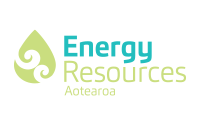CCC proposal unnecessarily inflates household & business costs
The Climate Change Commission’s proposed changes to Emissions Trading Scheme (ETS) settings would increase household and business costs, and a more moderate approach should be taken, according to analysis from Energy Resources Aotearoa.
Energy Resources Aotearoa’s analysis of the proposal shows that compared to today, an emissions price of $170 (just short of the Commission’s preferred cost containment reserve), could see the average household spend:
- $200 (9%) more for electricity each year;
- $150 (12%) more for natural gas each year; and
- $300 (10%) more for petrol each year.
Energy Resources Aotearoa chief executive John Carnegie says:
"The Climate Change Commission’s proposals are a departure from a focus on a least-cost transition and the embracing of gross emissions targets instead of the net targets passed by Parliament."
"The proposals would frontload the costs of the transition at a time when households and businesses are already grappling with rising costs, and supply chain and labour constraints. They don’t reflect the reality that innovative technologies become more affordable over time."
"We unambiguously support the goal of achieving net zero emissions by 2050. But why make that already challenging task more expensive and disruptive than it needs to be?"
"There is a better way. We support a least-cost approach based on stable, predictable ETS settings. This would impose far fewer unnecessary costs and make it much easier for households and businesses to plan for the long-term transition."
Carnegie says that that frequent and significant tinkering with the ETS will encourage market speculation and ultimately imperil New Zealand’s climate goals.
"New Zealand has a world-leading emissions trading scheme that enjoys widespread public and political support. That support should not be taken for granted."
"We are therefore calling on policymakers to take a more moderate approach that recognises the need for stability and predictability in the ETS."
Energy Resources Aotearoa's submission on the latest ETS proposals can be found here.
